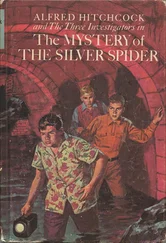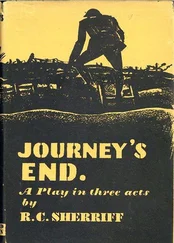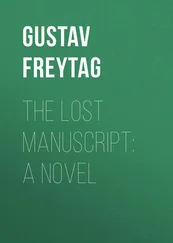Роберт Шеррифф - The Hopkins Manuscript
Здесь есть возможность читать онлайн «Роберт Шеррифф - The Hopkins Manuscript» весь текст электронной книги совершенно бесплатно (целиком полную версию без сокращений). В некоторых случаях можно слушать аудио, скачать через торрент в формате fb2 и присутствует краткое содержание. Год выпуска: 2018, ISBN: 2018, Издательство: Penguin Books, Жанр: sf_postapocalyptic, humor_satire, на английском языке. Описание произведения, (предисловие) а так же отзывы посетителей доступны на портале библиотеки ЛибКат.
- Название:The Hopkins Manuscript
- Автор:
- Издательство:Penguin Books
- Жанр:
- Год:2018
- ISBN:978-0-241-34908-3
- Рейтинг книги:4 / 5. Голосов: 1
-
Избранное:Добавить в избранное
- Отзывы:
-
Ваша оценка:
- 80
- 1
- 2
- 3
- 4
- 5
The Hopkins Manuscript: краткое содержание, описание и аннотация
Предлагаем к чтению аннотацию, описание, краткое содержание или предисловие (зависит от того, что написал сам автор книги «The Hopkins Manuscript»). Если вы не нашли необходимую информацию о книге — напишите в комментариях, мы постараемся отыскать её.
The Hopkins Manuscript — читать онлайн бесплатно полную книгу (весь текст) целиком
Ниже представлен текст книги, разбитый по страницам. Система сохранения места последней прочитанной страницы, позволяет с удобством читать онлайн бесплатно книгу «The Hopkins Manuscript», без необходимости каждый раз заново искать на чём Вы остановились. Поставьте закладку, и сможете в любой момент перейти на страницу, на которой закончили чтение.
Интервал:
Закладка:
We read that priceless little document from beginning to end a dozen times, taking it in turns to read in silence, taking it in turns to read aloud.
It was upon rough, grey paper, in type so blurred that parts were almost indecipherable, but it was a feast for news-starved people like ourselves.
It began with a brief summary of events that led up to and followed the cataclysm. This we knew to some extent from what the young airman had told, but it gave much detail that was new to us. It dwelt very little upon the dreadful destruction and toll of life, for that was over and beyond all remedy. It concentrated entirely upon an inspiring call for reconstruction.
The British Government had established itself in Oxford, partly because Oxford stood well in the centre of England and partly because that stubborn old city had suffered less than the majority from the tornado and the flood. The massive structure of its colleges had stood up to the shock as placidly as they had withstood the assaults of time and criticism. As a Cambridge man I could not but deplore the Government’s choice, but Cambridge was no doubt severely flooded.
The ample buildings of Christ Church were now the Parliament House, and each Government Department had taken a College for its own use. The Exchequer was in Magdalen, the Home Office at Balliol and the Ministry of Transport at St John’s. Wisely they were not attempting to organise from this fountainhead downwards: orders had gone out for every town and community to form its own council to undertake urgent services of food and health and to clear their immediate localities to the best of their ability.
Each town was to provide one representative to a ‘County Parliament’ to sit in the principal County Towns and organise their scattered communities. Above this authority was a council of representatives from the Counties themselves to sit in Oxford in close touch with Parliament.
The survivors of the Parliament sitting at the time of the cataclysm were mainly engaged upon National Reconstruction: of railways, water supplies and affairs that went beyond the localised authority of the Counties themselves.
Money values existing at the time of the cataclysm were no longer legal currency because this would have led to the whole population wasting valuable time in a feverish hunt for cash amidst the ruins. A primitive system of barter and exchange of goods was organised pending the issue of a new currency by the Government – and examples were given for the guidance of organised communities: –
4 potatoes = 1 egg
4 eggs = 1 rabbit
4 rabbits = 1 chicken, etc.
It was announced that radio programmes would begin once more upon the 1st September, and the bulletin even provided a column of domestic notes: ‘Reconstruction in the Home’. Oiled muslin, it stated, if nailed across broken windows, would provide light and protection from rain until such time as glass was available!
The keynote of the bulletin was ‘work! – work! – work!’ – and the whole country responded with excitement and joy.
One morning I was awakened by a steady clanging in the distance, and went down to discover a gang of men repairing the railway. Three days later a luggage train went through: a long, groaning train made up of every conceivable kind of truck. We shouted and waved from the hillside, and our greeting brought a grimy hand waving in reply from the engine cabin.
On another day a lorry came bouncing ponderously down the village street and we went to meet three severe-looking gentlemen in mackintoshes, with blue armlets marked ‘RM’. They were members of the ‘Reconstruction Ministry’ and had come to investigate the future of our village. We could offer them no information concerning the baffling disappearance of the people of Beadle and they could give me no promise as to the removal of the King Lear . After inspecting my house they informed me that no rebuilding of Beadle would be contemplated for the present at least. For purposes of organisation we were to consider ourselves citizens of Mulcaster. It was our first contact with Government officials and I was relieved when they departed, leaving us in peace.
Summer passed to autumn. The days were surprisingly, often distressingly hot, accompanied by heavy, tropical rains. Old Humphrey prophesied a bumper wheat crop and my own vegetables throve prodigiously in the steamy warmth that followed the torrential downpours of that strange summer.
Robin had made ingenious plans to guarantee fresh food supplies. With large quantities of wire netting he had constructed his own ‘rabbit farm’ which he stocked from the burrows in Widgeley Copse, and by damming the river behind the church he had created his own ‘fish reservoir’. Sources of fresh food were now close at hand in times of severe weather, and although we were getting rather sick of rabbit, we kept extremely fit and well.
But the little town of Mulcaster was the mirror through which we watched the steady stride of progress, for Mulcaster, in common with thousands of other towns throughout England and Europe, was hammering out its own destiny and forging its own primitive but effective scheme of organised life.
We soon established regular communication with the town. Robin had salvaged three old bicycles, and every Saturday we ‘rode to market’, taking with us a bundle of rabbits, a can of fish and any vegetables I could spare from the garden.
Although its roof had disappeared, Mulcaster Town Hall had been cleaned up and turned into an ‘Exchange Market’. We would hand over our farm produce to the ‘Reception Officer’ who gave us coloured vouchers in exchange. With these vouchers we could go around and purchase goods we needed from surrounding stalls. In place of our rabbits we would take back a slab of butter: our fish-can returned to Beadle full of milk and I usually set aside the vouchers gained by my vegetables for small domestic necessities, such as darning thread for Pat, floor polish, new curtain hooks, etc.
There was a fine spirit of comradeship in the town; a spirit that compared most favourably with the local pomposities and smugness of pre-cataclysm days. Its two hundred survivors were mostly in youth and early middle age, for unlike a war that destroys the best and strongest, the cataclysm had weaned away the weak and the infirm, leaving only the sturdy ones to survive the tornado and the privations that followed it. No man passed another without a friendly greeting: every man and woman was busy from morning till night, for each, beside his own personal occupation, gave three hours of his day to ‘The Council of Reconstruction’ for community work.
The destruction of the big combines and chain stores had brought individuality back to English life: the return of the craftsman and the master-man. It was a happy experience to walk down the main street – to hear the ring of the hammer and the hack of the wood-worker: to listen to sounds long silenced by the mass production of remote factories.
All through a scorching week of August we worked together in our wheat field. Humphrey and Robin scythed the corn while Pat and I stacked it into sheaves.
Humphrey threshed it himself in a primitive but effective manner and by autumn the apple shed was stacked with twelve good sacks of golden grain.
We kept three sacks for ourselves, hired a waggon and took the rest to Mulcaster. For our crop we received no less than nine red vouchers, the highest notes of currency, and as I locked the priceless little tickets into my bureau drawer I was able to say to Pat: ‘We are now bloated capitalists!’
I was able to turn part of our new wealth to excellent account. One morning in Mulcaster I was stirred by the sight of a dish of new-laid eggs in the Exchange Market: their price was prohibitive, but through exhaustive enquiry I traced the eggs to an old man who had by some means collected together enough poultry to run a small breeding farm.
Читать дальшеИнтервал:
Закладка:
Похожие книги на «The Hopkins Manuscript»
Представляем Вашему вниманию похожие книги на «The Hopkins Manuscript» списком для выбора. Мы отобрали схожую по названию и смыслу литературу в надежде предоставить читателям больше вариантов отыскать новые, интересные, ещё непрочитанные произведения.
Обсуждение, отзывы о книге «The Hopkins Manuscript» и просто собственные мнения читателей. Оставьте ваши комментарии, напишите, что Вы думаете о произведении, его смысле или главных героях. Укажите что конкретно понравилось, а что нет, и почему Вы так считаете.












